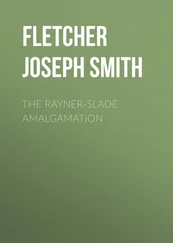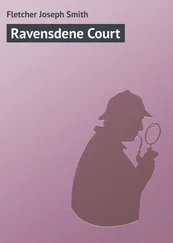Joseph Fletcher - The Herapath Property
Здесь есть возможность читать онлайн «Joseph Fletcher - The Herapath Property» — ознакомительный отрывок электронной книги совершенно бесплатно, а после прочтения отрывка купить полную версию. В некоторых случаях можно слушать аудио, скачать через торрент в формате fb2 и присутствует краткое содержание. Жанр: foreign_prose, Классический детектив, foreign_detective, foreign_antique, на английском языке. Описание произведения, (предисловие) а так же отзывы посетителей доступны на портале библиотеки ЛибКат.
- Название:The Herapath Property
- Автор:
- Жанр:
- Год:неизвестен
- ISBN:нет данных
- Рейтинг книги:5 / 5. Голосов: 1
-
Избранное:Добавить в избранное
- Отзывы:
-
Ваша оценка:
- 100
- 1
- 2
- 3
- 4
- 5
The Herapath Property: краткое содержание, описание и аннотация
Предлагаем к чтению аннотацию, описание, краткое содержание или предисловие (зависит от того, что написал сам автор книги «The Herapath Property»). Если вы не нашли необходимую информацию о книге — напишите в комментариях, мы постараемся отыскать её.
The Herapath Property — читать онлайн ознакомительный отрывок
Ниже представлен текст книги, разбитый по страницам. Система сохранения места последней прочитанной страницы, позволяет с удобством читать онлайн бесплатно книгу «The Herapath Property», без необходимости каждый раз заново искать на чём Вы остановились. Поставьте закладку, и сможете в любой момент перейти на страницу, на которой закончили чтение.
Интервал:
Закладка:
Selwood paused there, and a sudden silence fell—to be as suddenly broken by a sharp question from Barthorpe.
“The Witnesses?” he said. “The witnesses!”
Selwood glanced at the further paragraph which he had not thought it necessary to read.
“Oh, yes!” he said. “It’s witnessed all right.” And he went on reading.
“‘Signed by the testator in the presence of us both present at the same time who in his presence and in the presence of each other have hereunto set our names as witnesses.
“‘John Christopher Tertius, of 500, Portman Square, London: Gentleman. “‘Frank Burchill, of 331, Upper Seymour Street, London: Secretary.’”As Selwood finished, he handed the will to Peggie, who in her turn hastily gave it to Mr. Tertius. For a moment nobody spoke. Then Barthorpe made a step forward.
“Let me see that!” he said, in a strangely quiet voice. “I don’t want to handle it—hold it up!”
For another moment he stood gazing steadily, intently, at the signatures at the foot of the document. Then, without a word or look, he twisted sharply on his heel, and walked swiftly out of the room and the house.
CHAPTER VIII
THE SECOND WITNESS
If any close observer had walked away with Barthorpe Herapath from the house in Portman Square and had watched his face and noted his manner, that observer would have said that his companion looked like a man who was either lost in a profound day-dream or had just received a shock that had temporarily deprived him of all but the mechanical faculties. And in point of strict fact, Barthorpe was both stunned by the news he had just received and plunged into deep speculation by a certain feature of it. He hurried along, scarcely knowing where he was going—but he was thinking all the same. And suddenly he pulled himself up and found that he had turned down Portman Street and was already in the thick of Oxford Street’s busy crowds. A passer-by into whom he jostled in his absent-mindedness snarled angrily, bidding him look where he was going—that pulled Barthorpe together and he collected his wits, asking himself what he wanted. The first thing that met his gaze on this recovery was a little Italian restaurant and he straightway made for the door.
“This is what I want,” he muttered. “Some place in which to sit down and think calmly.”
He slipped into a quiet corner as soon as he had entered the restaurant, summoned a waiter with a glance, and for a moment concentrated his attention on the bill of fare which the man put before him. That slight mental exercise restored him; when the waiter had taken his simple order and gone away, Barthorpe was fully himself again. And finding himself in as satisfactory a state of privacy as he could desire, with none to overlook or spy on him, he drew from an inner pocket a letter-case which he had taken from Jacob Herapath’s private safe at the estate office and into which he had cast a hurried glance before leaving Kensington for Portman Square.
From this letter-case he now drew a letter, and as he unfolded it he muttered a word or two.
“Frank Burchill, 331, Upper Seymour Street,” he said. “Um—but not Upper Seymour Street any longer, I think. Now let’s see what it all is—what it all means I’ve got to find out.”
The sheet of paper which he was handling was of the sort used by typists, but the letter itself was written by hand, and Barthorpe recognized the penmanship as that of his uncle’s ex-secretary, Burchill, second witness to the will which had just been exhibited to him. Then he read, slowly and carefully, what Burchill had written to Jacob Herapath—written, evidently, only a few days previously. For there was the date, plain enough.
“35c, Calengrove Mansions,
“Maida Vale, W.
“ November 11th , 19—.
“Dear Sir,
“I don’t know that I am particularly surprised that you have up to now entirely ignored my letters of the 1st and the 5th instant. You probably think that I am not a person about whom any one need take much trouble; a mean cur, perhaps, who can do no more than snap at a mastiff’s heels. I am very well aware (having had the benefit of a year’s experience of your character and temperament) that you have very little respect for unmoneyed people and are contemptuous of their ability to interfere with the moneyed. But in that matter you are mistaken. And to put matters plainly, it will pay you far better to keep me a friend than to transform me into an enemy. Therefore I ask you to consider well and deeply the next sentence of this letter—which I will underline.
“I am in full possession of the secret which you have taken such vast pains to keep for fifteen years.
“I think you are quite competent to read my meaning, and I now confidently expect to hear that you will take pleasure in obliging me in the way which I indicated to you in my previous letters.
“Yours faithfully, “Frank Burchill.”Barthorpe read this communication three times, pausing over every sentence, seeking to read the meanings, the implications, the subtly veiled threat. When he folded the square sheet and replaced it in the letter-case he half spoke one word:
“Blackmail!”
Then, staring in apparent idleness about the little restaurant, with its gilt-framed mirrors, its red, plush-covered seats, its suggestion of foreign atmosphere and custom, he idly drummed the tips of his fingers on the table, and thought. Naturally, he thought of the writer of the letter. Of course, he said to himself, of course he knew Burchill. Burchill had been Jacob Herapath’s private secretary for rather more than a year, and it was now about six months since Jacob had got rid of him. He, Barthorpe, remembered very well why Jacob had quietly dismissed Burchill. One day Jacob had said to him, with a dry chuckle:
“I’m getting rid of that secretary of mine—it won’t do.”
“What won’t do?” Barthorpe had asked.
“He’s beginning to make eyes at Peggie,” Jacob had answered with another chuckle, “and though Peggie’s a girl of sense, that fellow’s too good looking to have about a house. I never ought to have had him. However—he goes.”
Barthorpe, as he ate the cutlets and sipped the half-bottle of claret which the waiter presently brought him, speculated on these facts and memories. He was not very sure about Burchill’s antecedents: he believed he was a young man of good credentials and high respectability—personally, he had always wondered why old Jacob Herapath, a practical business man, should have taken as a private secretary a fellow who looked, dressed, spoke, and behaved like a play-actor. As it all came within the scope of things he mused on Burchill and his personal appearance, calling up the ex-secretary’s graceful and slender figure, his oval, olive-tinted face, his large, dark, lustrous eyes, his dark, curling hair, his somewhat affected dress, his tall, wide-brimmed hats, his taper fingers, his big, wide-ended cravats. It had once amused Barthorpe—and many other people—to see Jacob Herapath and his secretary together; nevertheless, Jacob had always spoken of Burchill as being thoroughly capable, painstaking, thorough and diligent. His airs and graces Jacob put down as a young man’s affectations—yet there came the time when they suited Jacob no longer.
“I catch him talking too much to Peggie,” he had added, in that conversation of which Barthorpe was thinking. “Better get rid of him before they pass the too-much stage.”
So Burchill had gone, and Barthorpe had heard no more of him until now. But what he had heard now was a revelation. Burchill had witnessed a will of Jacob Herapath’s, which, if good and valid and the only will in existence, would leave him, Barthorpe, a ruined man. Burchill had written a letter to Jacob Herapath asking for some favour, reward, compensation, as the price of his silence about a secret. What secret? Barthorpe could not even guess at it—but Burchill had said, evidently knowing what he was talking about, that Jacob Herapath had taken vast pains to keep it for fifteen years.
Читать дальшеИнтервал:
Закладка:
Похожие книги на «The Herapath Property»
Представляем Вашему вниманию похожие книги на «The Herapath Property» списком для выбора. Мы отобрали схожую по названию и смыслу литературу в надежде предоставить читателям больше вариантов отыскать новые, интересные, ещё непрочитанные произведения.
Обсуждение, отзывы о книге «The Herapath Property» и просто собственные мнения читателей. Оставьте ваши комментарии, напишите, что Вы думаете о произведении, его смысле или главных героях. Укажите что конкретно понравилось, а что нет, и почему Вы так считаете.












